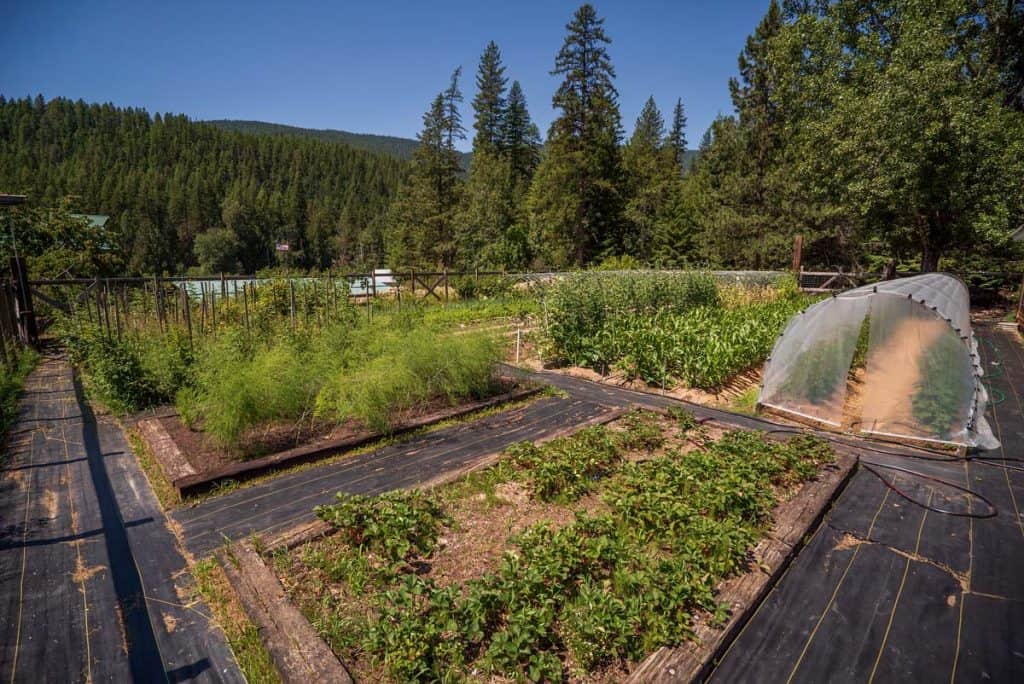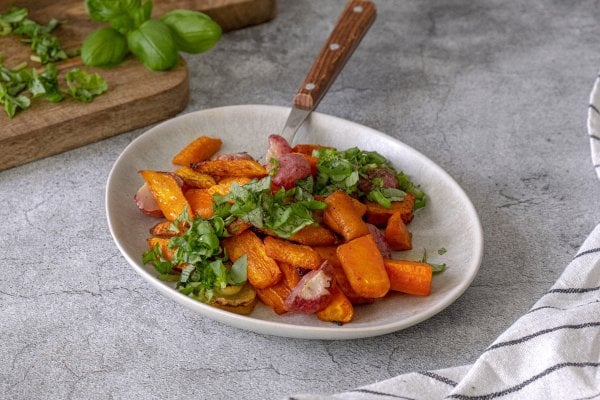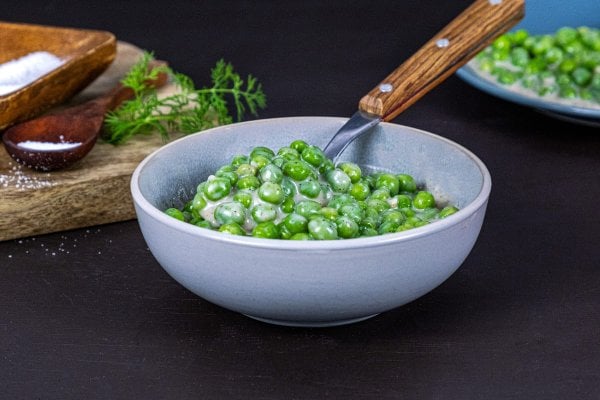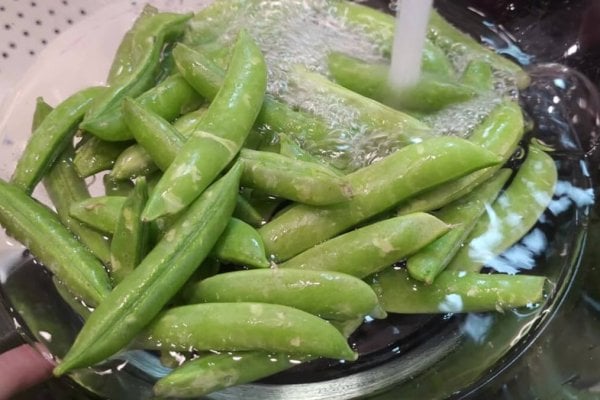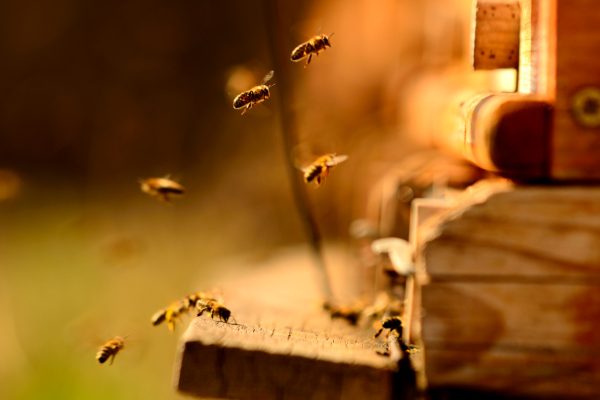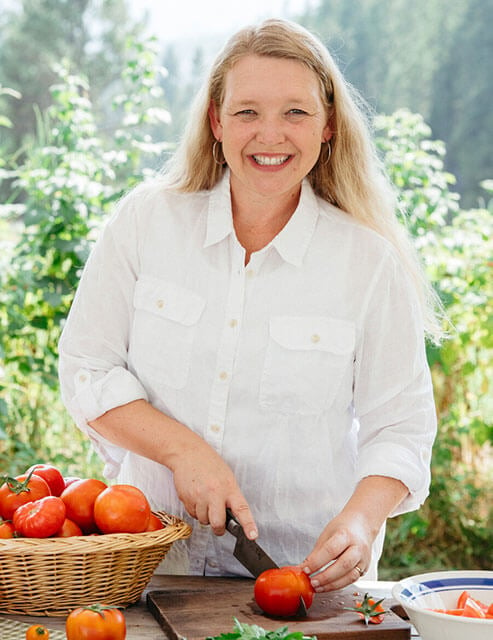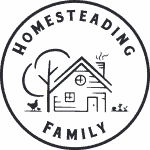There are many reasons why we would encourage someone to get started homesteading. You may even be surprised that not all “homesteading skills” we recommend require an actual homestead! This post will focus on seven specific reasons to homestead, drawn from Joel Salatin’s book, Homestead Tsunami.
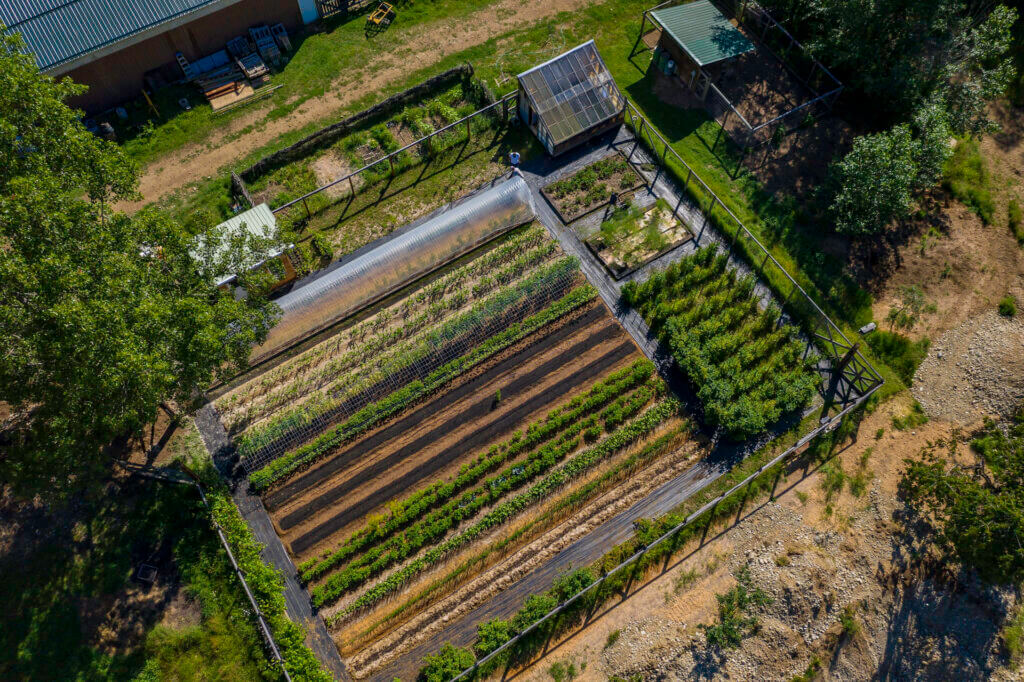
If you’ve been with us for a while, you know that we focus on being solutions-based instead of problem-focused. We love to be proactive and create resiliency as well as increase our homesteading skills and knowledge while also building financial freedom.
Last year we discussed the three most important things you should do to increase self-sufficiency, but this isn’t always enough. If you’ve been paying attention to the news, you know many problems are happening worldwide and we must be mindful of them.
Joel Salatin’s new book, Homestead Tsunami, discusses seven major issues that have, are currently happening, or will likely happen in our lifetime. Whether you’re contemplating homesteading, brand new to homesteading or a seasoned homesteader, Joel’s book is eye-opening, inspiring, and encouraging. Yet, it also calls us to action and to think about and prepare for the realities facing us.
In the past few years, we’ve all seen events happen that we wouldn’t have expected to experience in our society. The reality is that more events are possible than we realize (or would like to admit), so keeping these seven principles in our minds is important to becoming more resilient.

Top Seven Reasons to Start Homesteading Now!
In chapter five of Joel Salatin’s book, Homestead Tsunami, there is a list of seven possible scenarios people face over their lifetime. Though this list isn’t meant to bring up fear, it is meant to start a discussion and perhaps action in building resiliency where you are.
1. War
The top of the list is war. We’re seeing it happen right now. Though it may not be first-hand for most of us (we haven’t seen a war on American soil since 1865), it’s important to know that we’re not impregnable as a nation.
Nothing stresses food inventories like war. We can look back at history to see what war has done to the food systems to know that our current systems are weak. Though we may not be able to change the systems at large, we can start to take our food security into our own hands. Start by building up a well-stocked pantry (and here’s my list of pantry staples I’m never without).
War is a reality of civilizations, and it will come again. Though we’re not making predictions on the timeline, it’s still important to be living in a prepared state.
2. Civil Unrest
Just short of war is civil unrest. We’re looking at more and more of a fractionalized civilization, especially regarding political party lines. The reality is we have moral degradation in our modern culture. So, when people get deeply unhappy with government decisions, this can quickly lead to civil unrest.
A good example of civil unrest recently was the 2022 Canada Convoy Protest.
3. Lockdowns
In January 2020, if I had gone to any of my friends and said that in a few months, the majority of the United States (and the world) was going to be convinced to go on lockdown and stay inside their homes, they would have said it wasn’t possible.
We believe those 2020 lockdowns were a test run, and we’ll likely see them again. Though the events surrounding Covid were a huge motivator for many people to get prepared, many of those same people have now gotten relaxed again.
When we look at our culture’s current systems, we don’t believe any of them are getting stronger or better. The truth is, they’re all getting weaker. How weak do they have to get until they break? That’s yet to be seen.
What we do know is that all civilizations go through a historical pattern, and we’re currently on the downward side of our historical pattern.
4. The Grid
In Joel’s book, “The Grid” is specifically referring to the electrical grid and what might take place when the grid breaks down. We can’t go very long with the grid down as a society. We’re just not set up for it.
In fact, we find it somewhat humorous that our grid is already so overloaded that many places in the United States have to deal with rolling blackouts, yet we continue to push more and more toward the electric model. It was predicted that over 1 million electric vehicles (EVs) would be sold in 2023 in the U.S. alone. (Source)
While we don’t think it’s necessary to live 100% “off-grid,” we would like to encourage you to put some thought into your systems and find ways to have backups that can sustain you anywhere from a month to a year.
For more information, read our posts on how to prepare for a power outage and going off-grid with solar power.
5. Sabotage
Joel says, “Shortly after 9/11, the agriculture media carried numerous reports about sabotage vulnerability and how to make sure your farm was not susceptible.” Our food and water systems can be easily poisoned. Our transportation system (and the grid) can disrupt our food supply. And many other systems can quickly be interrupted with very little effort.
In the documentary No Farmers No Food: Will You Eat the Bugs? they discussed how much of America’s farmland is now owned by large Chinese companies. We quickly realized how easy it would be for these political adversaries to shut down many of our major food systems.
It’s said, “If you control the food system, you control the people.” We all know there’s much truth to this statement. In fact, in the past few years, we’ve seen many factories with mysterious fires. We won’t discuss whether they were truly accidents or not, but even these few major factories had a large impact on our food supply.
No matter where you stand, bringing your food supply as close to home as possible is always a good idea. Eliminating factories and grocery stores solidifies your food supply in emergency situations, no matter what sabotage may take place.
6. Disease
Disease is a part of human history; we are not above it. Even though we have areas of our medical system that can contain or fight them well, we can still have disasters that arise out of disease.
In fact, antibiotic resistance is a major, major problem. It’s creeping up and taking over, even though it’s not yet making headline news. Antibiotic resistance is moving to the top of being one of the biggest killers in the United States.
According to the CDC, in 2019, “in the U.S., more than 2.8 million antimicrobial-resistant infections occur each year. More than 35,000 people die as a result, according to CDC’s 2019 Antibiotic Resistance (AR) Threats Report.” (Source)
If you’re looking to take your health into your own hands, we have many resources available to you:
- How to Use Herb Medicine Safely at Home
- What to do in an Emergency Until Help Arrives
- How to Make Herbal Tinctures
- 15 Medicinal Herbs to Grow at Home
- How to Make Your Own Herb Capsules
- Medicinal Herbs & Their Uses
- Homemade Antibiotic Ointment
- Homemade Herbal Allergy Pills
- Bone Healing Comfrey Compress
7. Environmental Disaster
Hurricane Katrina taught us that we’re not equipped to handle natural disasters. We don’t fault anyone for this, as a natural disaster is just that, a disaster!
They will cause major problems, and no matter where you live, there’s potential for a natural disaster. It’s our recommendation to take precautions based on where you live.
Our Final Thoughts
History shows that as cultures get successful, they also get comfortable. With comfort comes complacency and a relaxed attitude toward preparedness. Just a mere three and a half years post-Covid, we, as a nation, are incredibly comfortable.
Homestead Tsunami draws on a positive outlook and keeping a solution-based mindset about these seven major problems that many of us will face. We’ve found that the benefits of homesteading and of living this lifestyle answer many of the concerns listed in this post/podcast.
We strongly recommend getting Joel’s book, Homestead Tsunami on your nightstand and start learning how you can improve your systems this year. Remember, a steady 1% improvement over time can lead to huge changes.
Just 1% change each week adds up to 52% over the course of a year. So don’t be afraid to start small, but do START!
